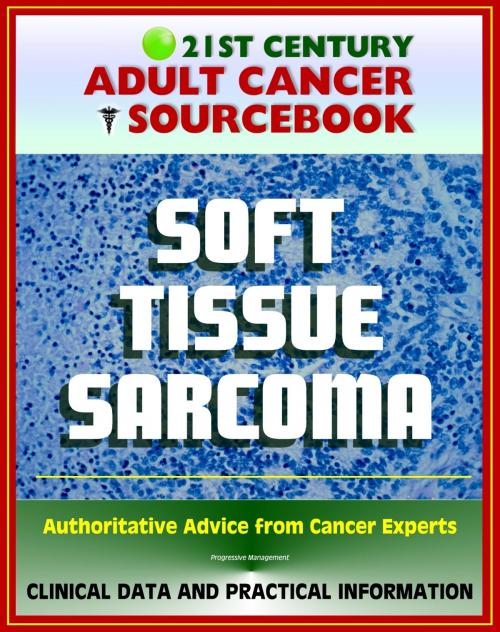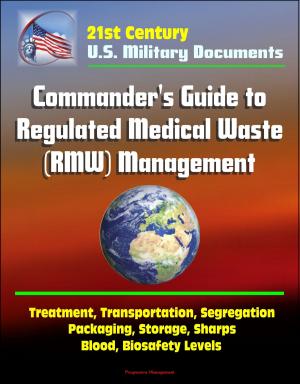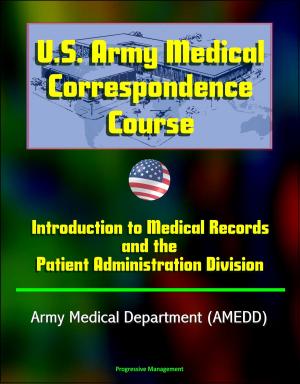21st Century Adult Cancer Sourcebook: Soft Tissue Sarcoma - Clinical Data for Patients, Families, and Physicians
Nonfiction, Health & Well Being, Health, Ailments & Diseases, Cancer| Author: | Progressive Management | ISBN: | 9781466143524 |
| Publisher: | Progressive Management | Publication: | October 26, 2011 |
| Imprint: | Smashwords Edition | Language: | English |
| Author: | Progressive Management |
| ISBN: | 9781466143524 |
| Publisher: | Progressive Management |
| Publication: | October 26, 2011 |
| Imprint: | Smashwords Edition |
| Language: | English |
Authoritative information and practical advice from the nation's cancer experts about soft tissue sarcoma includes official medical data on signs, symptoms, early detection, diagnostic testing, risk factors and prevention, treatment options, surgery, radiation, drugs, chemotherapy, staging, biology, prognosis, and survival, with a complete glossary of technical medical terms and current references.
Starting with the basics, and advancing to detailed patient-oriented and physician-quality information, this comprehensive in-depth compilation gives empowered patients, families, caregivers, nurses, and physicians the knowledge they need to understand the diagnosis and treatment of soft tissue sarcoma.
Comprehensive data on clinical trials is included - with information on intervention, sponsor, gender, age group, trial phase, number of enrolled patients, funding source, study type, study design, NCT identification number and other IDs, first received date, start date, completion date, primary completion date, last updated date, last verified date, associated acronym, and outcome measures.
Adult soft tissue sarcoma is a disease in which malignant (cancer) cells form in the soft tissues of the body. The soft tissues of the body include the muscles, tendons (bands of fiber that connect muscles to bones), fat, blood vessels, lymph vessels, nerves, and tissues around joints. Adult soft tissue sarcomas can form almost anywhere in the body, but are most common in the legs, abdomen, arms, and trunk. There are many types of soft tissue sarcoma. The cells of each type of sarcoma look different under a microscope, based on the type of soft tissue in which the cancer began.
Risk factors for soft tissue sarcoma include the following inherited disorders:
* Retinoblastoma.
* Neurofibromatosis type 1 (von Recklinghausen disease or NF1).
* Tuberous sclerosis.
* Familial adenomatous polyposis (FAP).
* Li-Fraumeni syndrome.
* Werner syndrome.
* Basal cell nevus syndrome.
Other risk factors for soft tissue sarcoma include past treatment with radiation therapy during childhood or for the following types of cancer:
* Retinoblastoma.
* Breast cancer.
* Lymphoma.
* Cervical cancer.
Extensive supplements, with chapters gathered from our Cancer Toolkit series and other reports, cover a broad range of cancer topics useful to cancer patients. This edition includes our exclusive Guide to Leading Medical Websites with updated links to 81 of the best sites for medical information, which let you quickly check for updates from the government and the best commercial portals, news sites, reference/textbook/non-commercial portals, and health organizations. Supplemental coverage includes:
Levels of Evidence for Cancer Treatment Studies
Glossary of Clinical Trial Terms
Clinical Trials Background Information and In-Depth Program
Clinical Trials at NIH
How To Find A Cancer Treatment Trial: A Ten-Step Guide
Authoritative information and practical advice from the nation's cancer experts about soft tissue sarcoma includes official medical data on signs, symptoms, early detection, diagnostic testing, risk factors and prevention, treatment options, surgery, radiation, drugs, chemotherapy, staging, biology, prognosis, and survival, with a complete glossary of technical medical terms and current references.
Starting with the basics, and advancing to detailed patient-oriented and physician-quality information, this comprehensive in-depth compilation gives empowered patients, families, caregivers, nurses, and physicians the knowledge they need to understand the diagnosis and treatment of soft tissue sarcoma.
Comprehensive data on clinical trials is included - with information on intervention, sponsor, gender, age group, trial phase, number of enrolled patients, funding source, study type, study design, NCT identification number and other IDs, first received date, start date, completion date, primary completion date, last updated date, last verified date, associated acronym, and outcome measures.
Adult soft tissue sarcoma is a disease in which malignant (cancer) cells form in the soft tissues of the body. The soft tissues of the body include the muscles, tendons (bands of fiber that connect muscles to bones), fat, blood vessels, lymph vessels, nerves, and tissues around joints. Adult soft tissue sarcomas can form almost anywhere in the body, but are most common in the legs, abdomen, arms, and trunk. There are many types of soft tissue sarcoma. The cells of each type of sarcoma look different under a microscope, based on the type of soft tissue in which the cancer began.
Risk factors for soft tissue sarcoma include the following inherited disorders:
* Retinoblastoma.
* Neurofibromatosis type 1 (von Recklinghausen disease or NF1).
* Tuberous sclerosis.
* Familial adenomatous polyposis (FAP).
* Li-Fraumeni syndrome.
* Werner syndrome.
* Basal cell nevus syndrome.
Other risk factors for soft tissue sarcoma include past treatment with radiation therapy during childhood or for the following types of cancer:
* Retinoblastoma.
* Breast cancer.
* Lymphoma.
* Cervical cancer.
Extensive supplements, with chapters gathered from our Cancer Toolkit series and other reports, cover a broad range of cancer topics useful to cancer patients. This edition includes our exclusive Guide to Leading Medical Websites with updated links to 81 of the best sites for medical information, which let you quickly check for updates from the government and the best commercial portals, news sites, reference/textbook/non-commercial portals, and health organizations. Supplemental coverage includes:
Levels of Evidence for Cancer Treatment Studies
Glossary of Clinical Trial Terms
Clinical Trials Background Information and In-Depth Program
Clinical Trials at NIH
How To Find A Cancer Treatment Trial: A Ten-Step Guide















